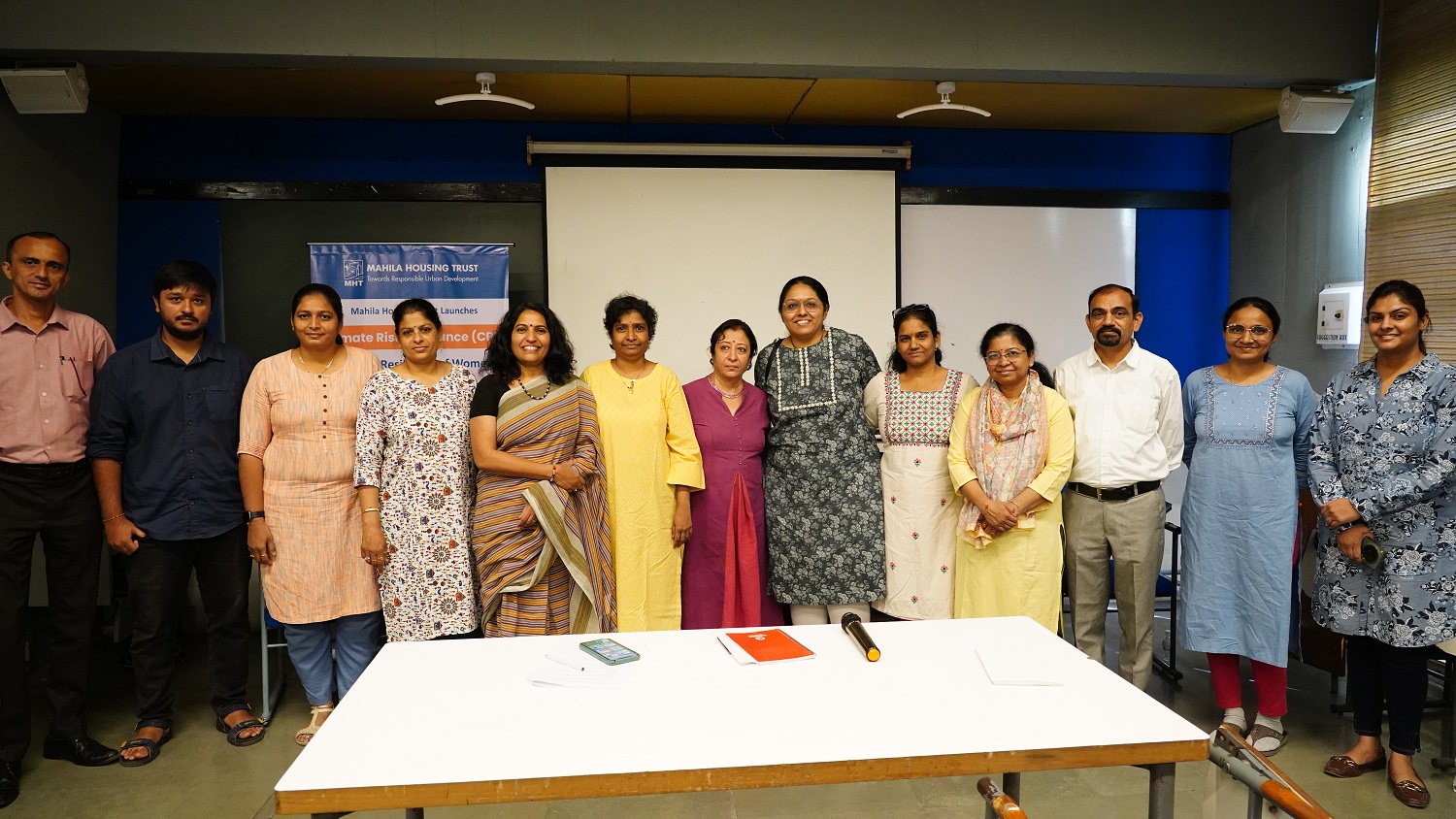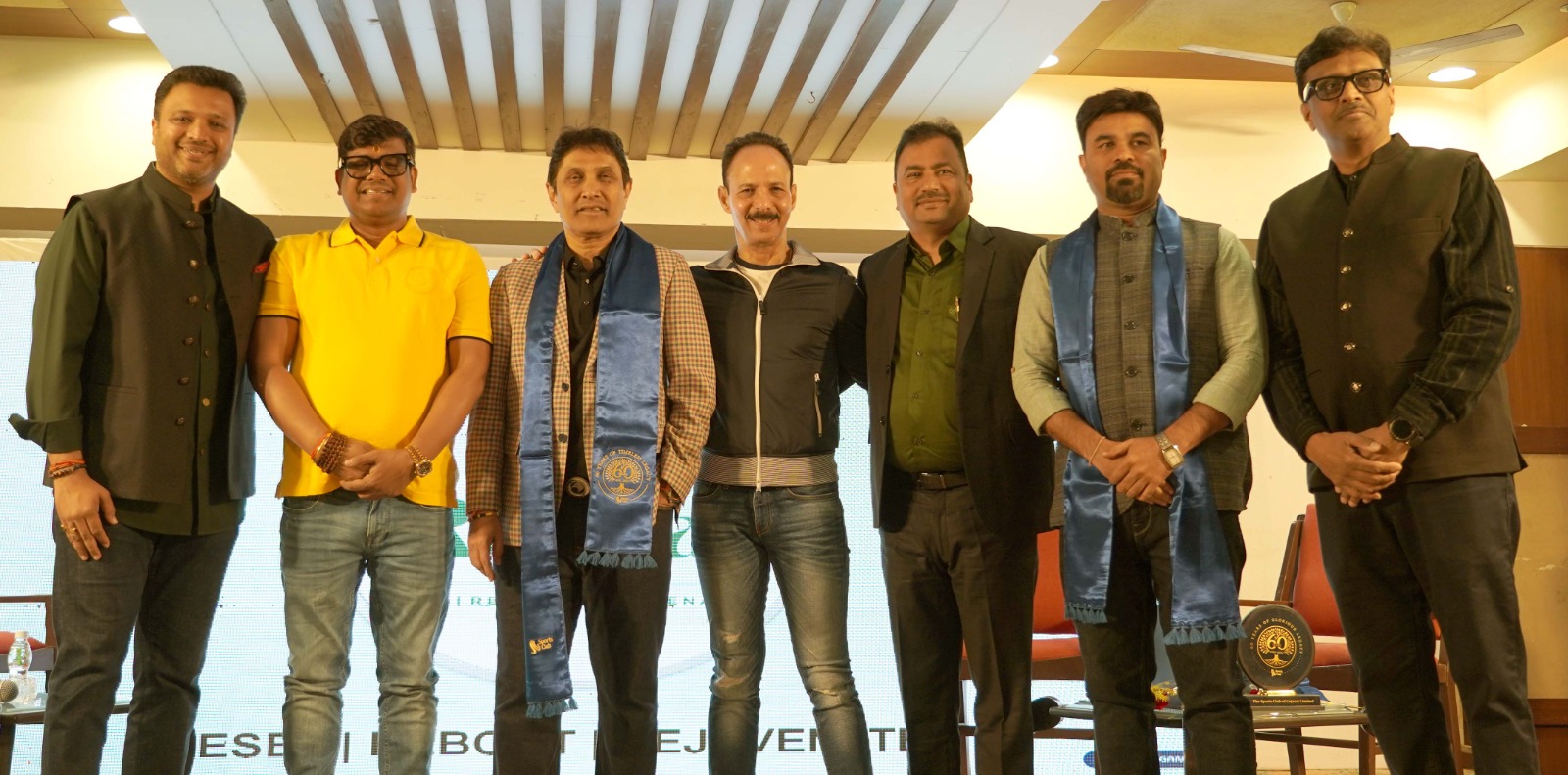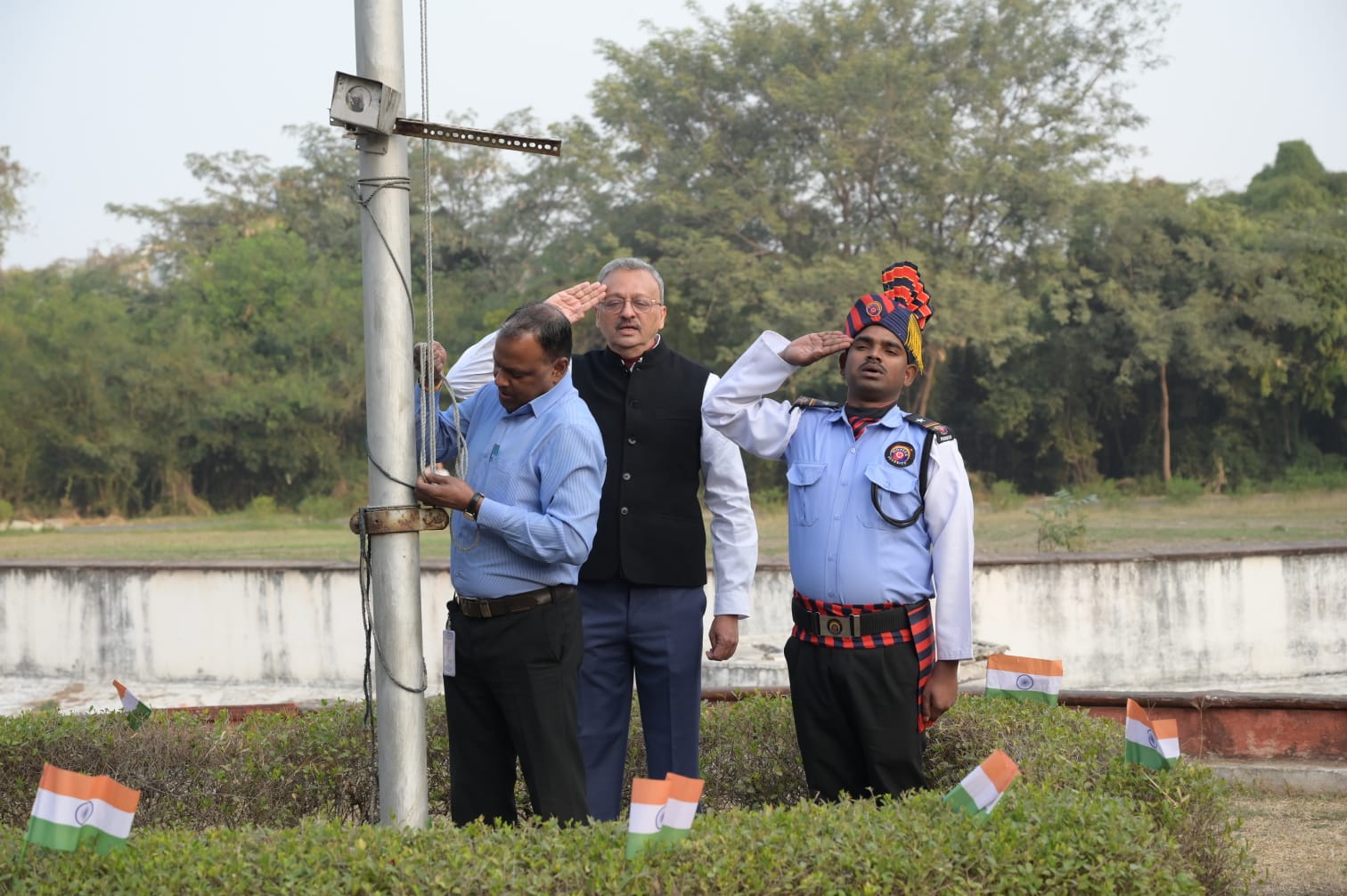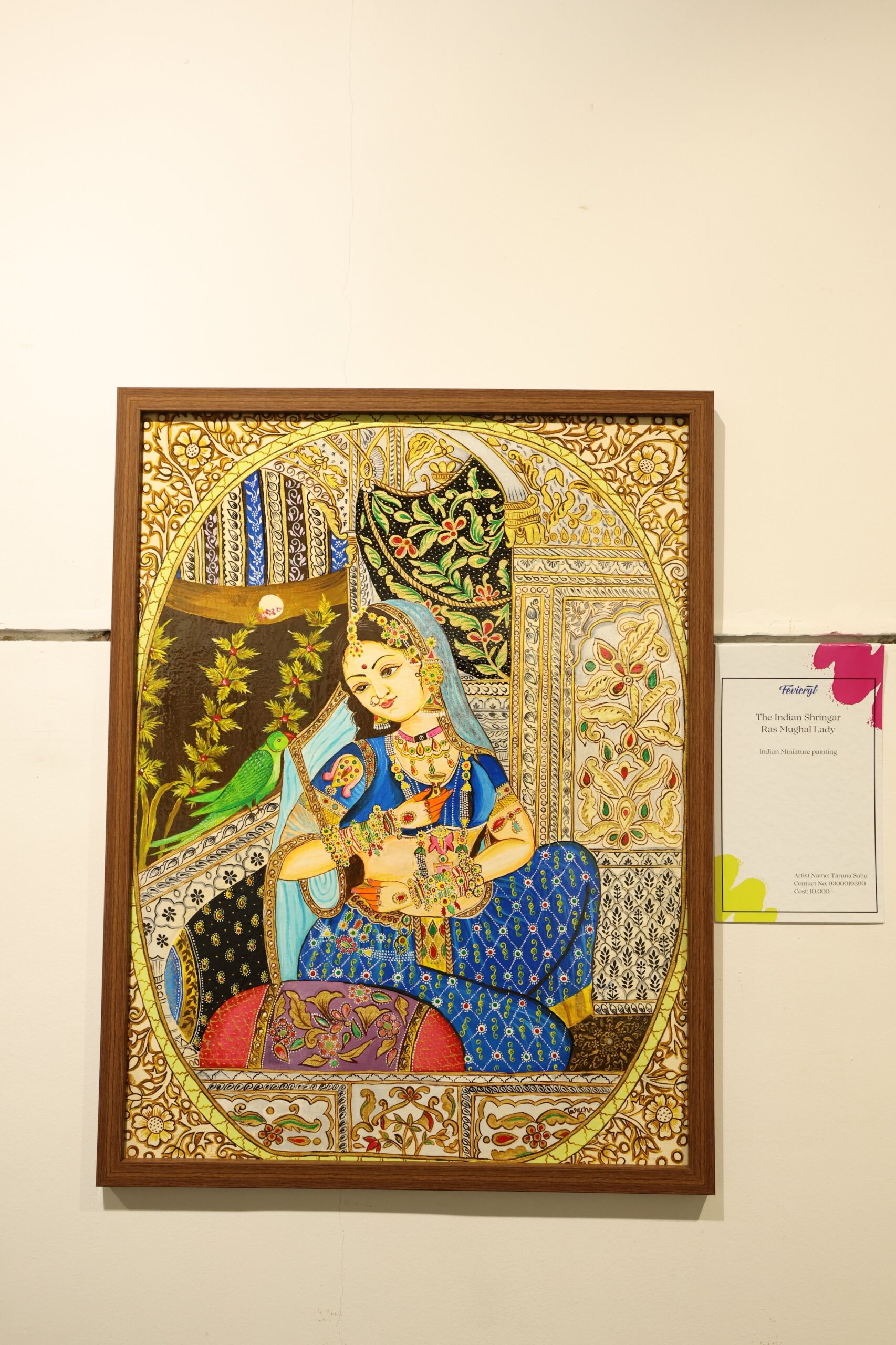Ahmedabad, India – April 26, 2024 – Mahila Housing Trust (MHT) today announced the first-of-its- kind Climate Risk Insurance (CRI) specifically designed to protect women in the informal sector from the devastating impacts of extreme heat waves. This transformative insurance product, developed in partnership with Global Parametrics (GP), Howden Group, and Digit General Insurance, marks a significant milestone in building the resilience of marginalized communities against the escalating effects of climate change. On this occasion, Bijal Brahmbhatt (Director, Mahila Housing Trust), Siraz Hirani (Senior Programme Management Specialist, Mahila Housing Trust), Bhavana Maheriya (Programme Manager, Mahila Housing Trust), Raji Gorana (Consultant, Mahila Housing Trust), Dhvani Shah (Surat Mahila Nagrik Dhiran Sahakari Mandali Ltd.), Nital Patel (Shree Swashrayi Mahila Nagrik Dhiran Sahakari Mandali, Ltd. Vadodara), Chirayu Brahmbhatt (Development Associate, Mahila Housing Trust) were present.
Addressing the Impact of Extreme Climate Events- Extreme climate events have long posed significant challenges for the poor and marginalized, particularly those residing in slums and informal settlements. Women, in particular, bear a disproportionate burden. With a substantial 80% of India’s workforce engaged in the informal sector, a majority of whom are women, the lack of insurance coverage against extreme weather phenomena like heat waves or floods exacerbates their vulnerability. Consequently, they often experience financial strain and health setbacks when they forego employment and income due to adverse weather conditions. Additionally, healthcare expenses rise, particularly for women who bear a dual caregiving burden, impacting both their health and financial well-being. Moreover, women endure greater work and income loss compared to men in such circumstances.
“As we unveil our Climate Risk Insurance, we stand committed to build the resilience of the most vulnerable, particularly women in the informal sector, against the impacts of extreme weather events. Through proactive measures and strategic partnerships, we aim to forge a path towards resilience and security for those most in need.“– Bijal Brahmbhatt, Director of Mahila Housing Trust
Bhavana Maheriya, Programme Manager, MHT, highlights the extensive research conducted to tailor the insurance scheme to the needs of informal workers. Through affordability studies and direct engagement with women across diverse communities, valuable insights were gathered to shape the scheme.
Our Approach-MHT takes a holistic approach, aiming not only to provide insurance but also to educate women about heat stress. We assist them in implementing preventive and adaptive measures such as cool roofs, solar caps, and tree plantations. Insurance covers the remaining risk, ensuring comprehensive protection.
Introducing MHT’s Climate Risk Insurance (CRI)- Recognizing the urgent need to provide a safety net for vulnerable communities, MHT has developed a pioneering insurance scheme tailored to the specific needs of informal workers. The CRI aims to provide financial protection to individuals unable to work during extreme heat conditions, with a focus
on cities like Ahmadabad, Baroda, Surat, Tapi, Gandhinagar and Anand in Gujarat during its pilot phase.
Consequently, premiums have been thoughtfully set at an affordable rate for the summer season, spanning from April to July. The minimum coverage for this premium is set at three days’ worth of income loss / health expenditure with the maximum coverage extending to six days’ worth of income loss / health expenditure.
A Model for Empowerment and Resilience
Through the utilization of excess heat indexes, MHT ensures timely support for individuals impacted by extreme temperatures. Payments are triggered when predetermined thresholds are breached, like 43.72°C in Ahmedabad, 43.6°C in Baroda and 37.67°C in Surat for two consecutive days.
Mahila Housing Trust, in collaboration with Global Parametrics (GP), Howden group and Digit General Insurance aims to serve as a model for other organizations and countries in addressing the needs of the poor and marginalized affected by climate change.
Building Resilience Through Education
In addition to the CRI, MHT has developed innovative educational tool – the ‘Gud Luck climate risk insurance game’ to raise awareness and empower communities to adapt to climate risks. By providing training and interactive gameplay, MHT aims to increase awareness and understanding of climate risks among vulnerable communities, paving the way for greater resilience in the face of climate change.
About Mahila Housing Trust (MHT)
Established in 1994, Mahila Housing Trust (MHT) is a pioneering grassroots organization in India dedicated to meeting the housing needs of women in the informal sector. With a strong commitment to fostering gender-inclusive urban environments, MHT empowers women by developing grassroots institutions and enhancing their technical knowledge. Through active participation in decision-making processes, women lead efforts to improve their communities and cities, addressing not only housing but also broader issues of habitat, urban development, water and sanitation, energy, land rights, and microfinance. MHT’s focus on women’s roles in participatory governance underscores its dedication to creating responsible urbanization.
MHT champions a women-led community-based resilience model, integrating evidence- based approaches and innovative communication strategies. Focused on climate stressors such as heat extremes, flooding, deteriorating water quality, and diseases, MHT’s efforts prioritize the most vulnerable, particularly women in impoverished communities. Additionally, MHT facilitates clean energy transitions and builds resilience against extreme heat stress, addressing critical concerns in India’s urban areas. Positioned as a bridge between grassroots and mainstream institutions, MHT plays a vital role in advancing responsible urban development across India, with recent expansions into Nepal and Bangladesh.






